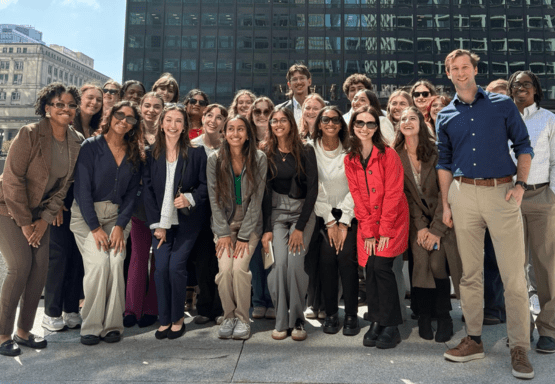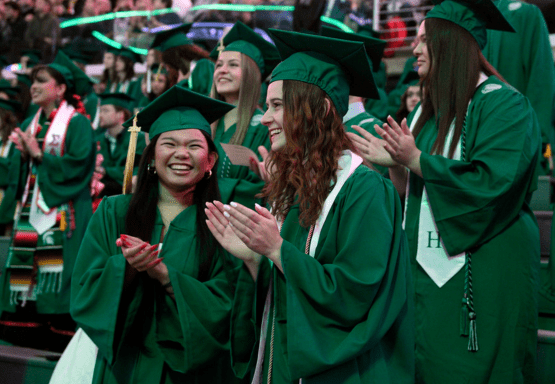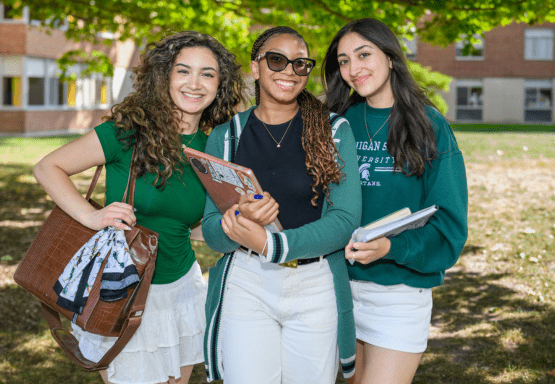Last month’s annual Jack Paynter Lecture drew one of its largest crowds to date. James Madison College struck exactly the right chord with a trifecta for success: timely topic, panel discussion format and engaging experts.
The April 4th event titled “The Problem of the Supreme Court and Partisan Polarization” was held in Case Hall’s Club Spartan and livestreamed.
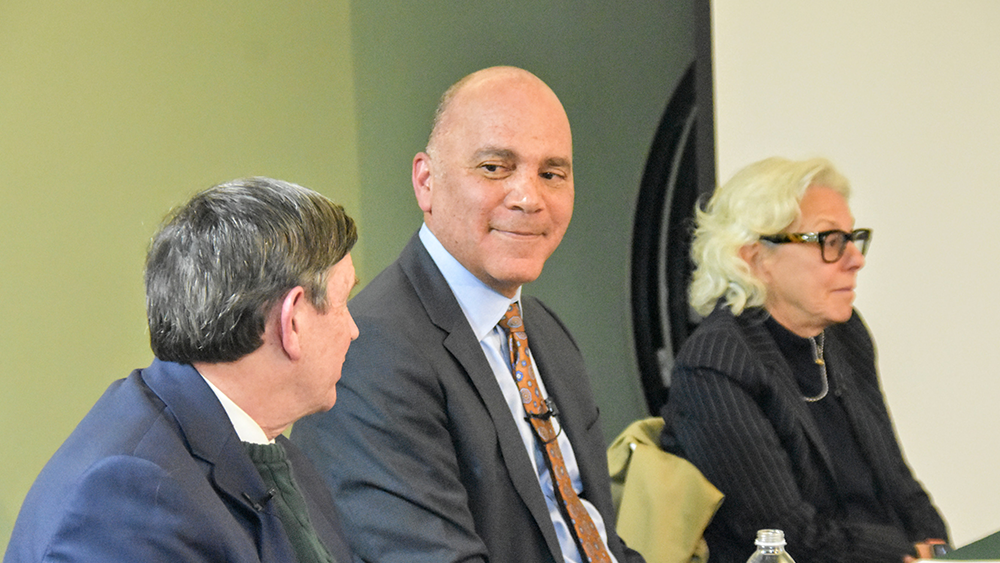
James Madison alumni Rogers Smith (JMCD ’74) and former Texas Supreme Court Chief Justice Wallace Jefferson (Urban ‘85) were two of the three featured speakers, with Jefferson moderating the discussion between Smith, who is a political scientist and Distinguished Professor at the University of Pennsylvania, and Lee Epstein, professor of law and political science at the University of Southern California.
Among the various points for discussion was whether there is hope for the Supreme Court to become less polarized or whether the future appears even more grim.
Epstein suggested greater polarization is inevitable unless the Court avoids “hot button” issues like abortion.
“I think Dr. Epstein is right that these hot button issues certainly do not help polarization and likely contribute to the Court’s lower public standing,” said Jordan Cash, assistant professor of political theory and constitutional democracy. He continued, “But at the same time, the Court’s constitutional function is to resolve cases and controversies that arise. I think a major part of the problem is that the elected branches kick these ‘hot button’ questions to the courts for resolution rather than dealing with them themselves.”
Professor Emeritus Richard Zinman attended the lecture and during the Q&A portion of the discussion asked the panel to consider the fundamental causes of such extreme polarization. “It should be expected that partisanship would infect judicial systems, but what is the fundamental cause?” Zinman said. “What’s wrong with us now?”
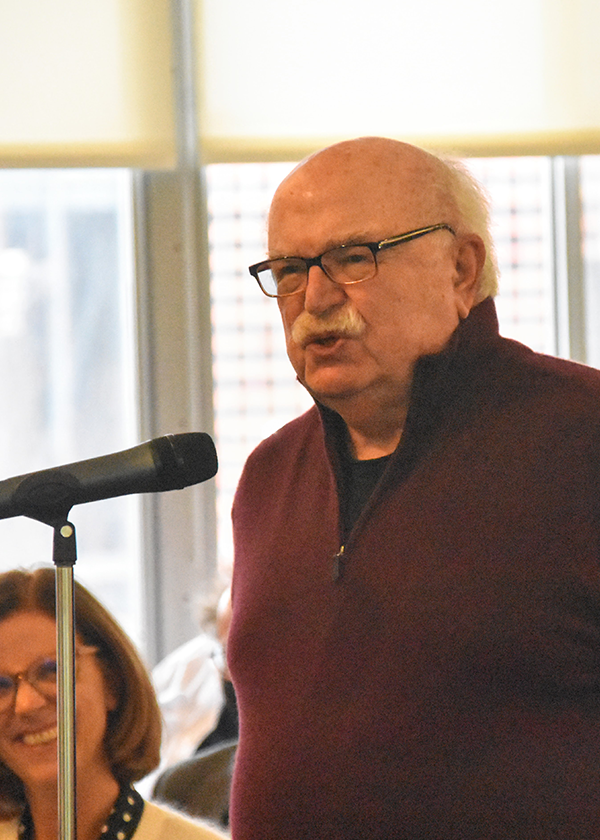
Smith suggested the U.S. has become more polarized as the distribution of power and privilege is challenged. “We used to be a country more unified in our privileges and powers than we are today,” Smith said.
All three panelists agreed that the lack of civil discourse is increasingly problematic and only deepens the divide. “Law schools need to do a better job of teaching students how to engage in conversation and stop existing in an echo chamber,” said Epstein.
“Shutting down speech is a real disservice,” Jefferson said.
District Court Judge Molly Greenwalt attended the lecture and described the entire discussion as a welcome change of pace. “In my daily life as a district court judge and a parent of school-age kids, there is not always room for insightful discussion and reflection about constitutional theories and partisan polarization,” Greenwalt said.
“The importance of listening to opposing viewpoints definitely resonates with me working in a local district court. I believe our inability to listen to each other has contributed to the erosion of trust in public institutions, including the courts,” said Greenwalt.
For JMC student Tyler Buck (PTCD ’26), attending events like the Jack Paynter Lecture helps to reinforce content taught in his coursework. “These lectures contextualize more of the readings in my courses, providing more profound and enriching experiences,” said Buck.
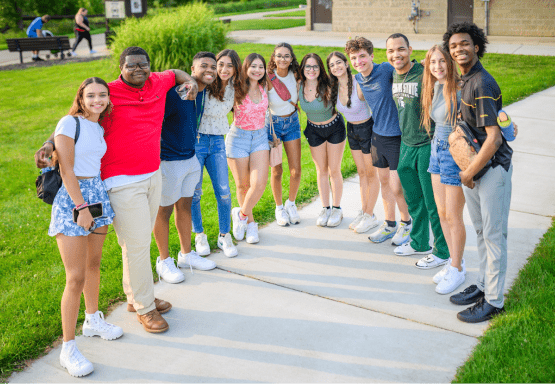
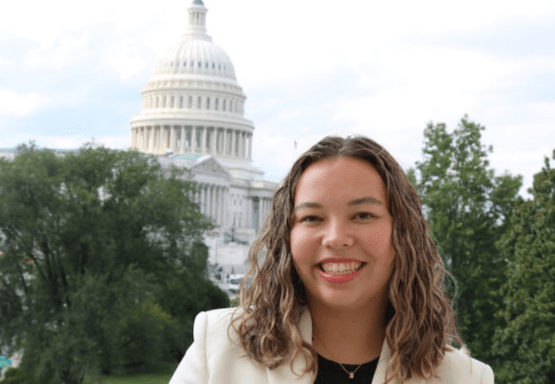
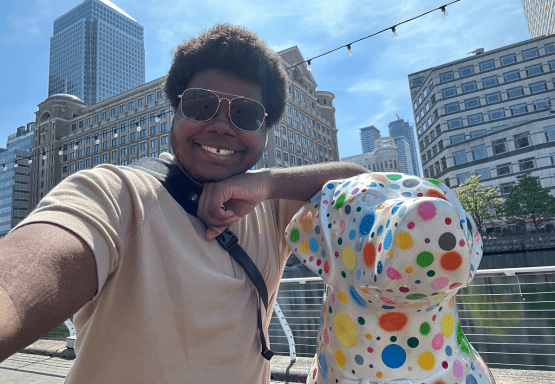
.png?h=384&iar=0&w=555)
